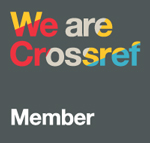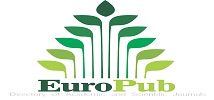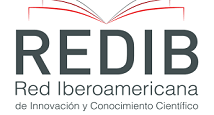COVID-19, a challenge for inclusive education in Peru
DOI:
https://doi.org/10.51440/unsch.revistaeducacion.2020.18.173Keywords:
Educación inclusiva, equidad, COVID-19Abstract
In this research work, whose objective is to analyze the situation of COVID-19, as a challenge for inclusive education in Peru; whose approach is qualitative at a descriptive level, documentary research design, a document analysis technique was used whose sources of information were periodicals and scientific journals. In this educational political crisis in a state of health emergency, in the face of an invisible enemy COVID-19, students of different levels show difficulties in technological management, low internet signal in high Andean areas of Peru, lack of resources and equipment technological, both students and teachers. With a very precarious educational system and that is not only about talking about the inclusion of people with disabilities, it also has to do with integrating everyone according to their cultural diversity. Equity in education, then, must be based on the fact that education is a universal right with an inclusive opportunity for virtual education, therefore, it has to be based on equity, justice, tolerance and acceptance of the different ways of understanding and live reality.Downloads
References
Ahmed, F., Ahmed, N., Pissarides, C., & Stiglitz, J. (2020). Why inequality could spread COVID-19. The Lancet Public Health, 5(5), e240. https://doi.org/10.1016/S2468-2667(20)30085-2
Alcalá-Sánchez, I. G., & Martínez, C., (2013). La migracion campo- ciudad, un grave problema social y educativo. Primer Congreso Internacional de Educación, 1817–1828. http://cie.uach.mx/cd/docs/area_07/a7p11.pdf
Arias, F. G. (2006). El proyecto de investigación (Sexta). Episteme.
Baena Paz, G. (2017). Metodologia? de la investigacio editorial Patria. (3a. ed.). Grupo
Bayham, J., & Fenichel, E. P. (2020). Impact of school closures for COVID-19 on the US health-care workforce and net mortality: a modelling study. The Lancet Public Health, 5(5), e271–e278. https://doi.org/10.1016/S2468-2667(20)30082-7
Castillo, D., Santa Cruz-Grau, E., & Vega, A. (2018). Estudiantes migrantes en escuelas públicas chilenas. Calidad En La Educación, (49), 18. https://doi.org/10.31619/caledu.n49.575
CEPAL. (2018). Panorama social de América Latina. Informe anual. https://bit.ly/34psQTx
Colao, A., Piscitelli, P., Pulimeno, M., Colazzo, S., Miani, A., & Giannini, S. (2020). Rethinking the role of the school after COVID-19. The Lancet Public Health, 5(7), e370. https://doi.org/10.1016/S2468-2667(20)30124-9
Congreso de la República del Perú. (2018, 18 de junio). Ley que promueve la educación inclusiva, modifica el artículo 52 e incorpora los artículos 19-A y 62-A en la ley 28044, Ley General de Educación Diario Oficial el peruano https://bit.ly/2GkWz5Z
Cuecuecha, A. (2010). Las características educativas de los emigrantes mexicanos a Estados Unidos. Econoquantum, 7(1), 7–40. https://doi.org/10.18381/eq.v7i1.118
Cueto, S., Rojas, V., Dammert, M., & Felipe, C. (2018). Cobertura, oportunidades y percepciones sobre la educación inclusiva en el Perú. In Grade: Grupo de Análisis para el Desarrollo 1(9). https://doi.org/10.1017/CBO9781107415324.004
Díaz Vera, M. P. (2017). Inclusión escolar y migrantes: Representaciones sociales de quienes lideran los procesos educativos del alumnado diverso. https://bit.ly/2EWLSFM
Echeita, G., & Ainscow, M. (2011). La educación inclusiva como derecho. Marco de referencias y pautas de acción para el desarrollo de una revolución pendiente. Tejuelo, 12(2), 26–46. https://bit.ly/3kWfhk4
Fernández, B., & Hernández F., (2013). Liderazgo directivo e inclusión educativa. Revista de Educación Inclusiva, 4(3), 117-144. Obtenido de https://bit.ly/2EwMLVE
Fernández, B., (2013). Teaching Competences and Inclusive Education Competencias docentes y educación inclusiva. Redie, 15(2),82–99. https://bit.ly/2EPR92r
García, N., X. & Bermúdez, L., I. L. (2020). Educación inclusiva: una escuela para todos. Universo Sur.
Gine, C. (1988). De la educación especial a la integración. Papeles Del Psicólogo, 35(5). https://bit.ly/31M6BoM
Jacobo, G., & Loubet, M., A. (2010). La formación de educadores de migrantes: una perspectiva compleja.
Hernandez, R., Fernandez, C., & Baptista, L. (2010). Metodología de la investigación . In Metodología de la investigación. https://bit.ly/37YAmXh
López, M., Arán, F., & Richaud, M. (2014). Empatía : desde la percepción automática. Avances En Psicología Latinoamericana, 32(1), 37–51. https://bit.ly/2EPR92r
Marchesi, Á., Blanco, R., & Hernández, L. (2019). Cinco Dimensiones Claves para Avanzar en la Inclusión Educativa en Latinoamérica. Latinoamericana de Educación Inclusiva, 13(2), 45–56. http://dx.doi.org/10.4067/S0718-73782019000200045
Pastor, M. & González, F. (2013). La inclusión educativa desde la voz del estudiante inmigrante. Revista de Educación Inclusiva, 6(1), 75–89.
Moliner, O. (2013). Educación inclusiva. Castelló de la Plana, Spain: Universitat Jaume I. Servei de Comunicació i Publicacions.
Nano, M. (2009). El derecho a la educación en el Perú en tiempos neoliberales. Educación, 18(35), 23–40.
Payà, A. (2010). Políticas de educación inclusiva en América Latina propuestas, realidades y retos del futuro. Revista Educación Inclusiva, 3(2), 125–142.
Rodriguez, V. L. (2019). La educación inclusiva en tiempos de crisis. Edurama, 1(1), 44–47.
Rosenthal, D. M., Ucci, M., Heys, M., Hayward, A., & Lakhanpaul, M. (2020). Impacts of COVID -19 on vulnerable children in temporary accommodation in the UK. The Lancet Public Health, 5 ( 5 ) , e 2 4 1 – e 2 4 2 . h t t p s : / / d o i . o r g / 1 0 . 1 0 1 6 / S 2 4 6 8 - 2667(20)30080-3
Santacana, J. (Coord.) y López, B., (Coord.). (2014). Educación, tecnología digital y patrimonio cultural: para una educación inclusiva. Ediciones Trea. https://elibro.net/es/lc/unsch/titulos/117727
Sarto, P., & Venegas, E. (2009). Construyendo un concepto de educación inclusiva: una experiencia compartida. In Aspectos clave de la educación inclusiva. https://bit.ly/2QJS7zz
Sevilla, D., E., Martín, M. J., & Jenaro, C. (2018). Actitud del docente hacia la educación inclusiva y hacia los estudiantes con necesidades educativas especiales. Innovación Educativa (México, DF), 18(78), 115–141. https://bit.ly/2YYvBYm
Simón, C., Barrios, Á., Gutiérrez, H., & Muñoz, Y. (2019). Equidad, Educación Inclusiva y Educación para la Justicia Social. ¿Llevan Todos los Caminos a la Misma Meta? Revista Internacional de Educación Para La Justicia Social, 8(2), 17–32. https://doi.org/10.15366/riejs2019.8.2.001
UNESCO. (1997). Declaración mundial sobre la educación superior en el ciclo XXI. Educación Superior y Sociedad, 9(2), 97–113.
UNESCO. (2008). La educación inclusiva: el camino hacia el futuro. 69–73. https://bit.ly/34bqOWH
Van Lancker, W., & Parolin, Z. (2020). COVID-19, school closures, and child poverty: a social crisis in the making. The Lancet Public Health, 5(5), e243–e244. https://doi.org/10.1016/S2468-2667(20)30084-0
Velazque, L., Valenzuela, C. J., & Murillo, F. (2020). Pandemia COVID-19: repercusiones en la educación universitaria. Odontología Sanmarquina, 23(2), 203–205. https://doi.org/10.15381/os.v23i2.17766
Downloads
Published
How to Cite
Issue
Section
License
Copyright (c) 2020 Edison Laderas Huillcahuari, Pedro Huauya Quispe, Víctor Alcides Coaquira Cárdenas

This work is licensed under a Creative Commons Attribution-NonCommercial 4.0 International License.





















